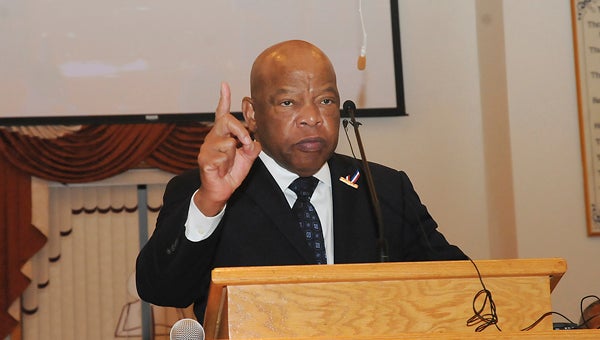Thirty teachers tour Selma as part of a Civil Rights Summer Institute
Published 10:30 pm Tuesday, July 17, 2018
Thirty school teachers from across the country traveled to Alabama this month to study the history and legacy of the civil rights movement in the state.
On Monday, the group visited Selma.
This trip was made possible by a $185,907 grant from the National Endowment for the Humanities (NEH) to support the Alabama Humanities Foundation (AHF) in producing a three-week Civil Rights Summer Institute.
The institute, titled “‘Stony the Road We Trod …’ Exploring Alabama’s Civil Rights Legacy” comes from Dr. Martha Bouyer, who since 2002, has directed over 20 workshops on the Civil Rights Movement in Alabama.
“This version marks the first time it (the institute) will be offered as an extended, intensive institute,” said Bouyer. “Spanning three weeks, teachers will hear from movement leaders and have the opportunity to examine the legacy of the movement alongside some of the country’s leading scholars – all within the context of key places in civil rights history.
“I’m very excited for teachers to have more time for exchange and in-depth study,” said Bouyer. “I’m also looking forward to introducing a wider variety of material and scholars who we haven’t been able to include in the past.”
AHF first partnered with Bouyer in 2015 for an in-state teacher workshop. In 2016, the organization partnered with an NEH-funded Landmarks of American History and Culture workshop that retraced the steps of the movement through Birmingham, Montgomery and Selma, where teachers toured historic sites, met with foot soldiers of the movement and studied pivotal moments in history with noted scholars.
This time the visit to Selma was the beginning of the teachers’ second week of the institute.
At each visit, the group had central questions they were to discuss after the visit was concluded.
At the Selma visit, the group was asked to think about how the counties in Alabama’s Black Belt, which is Dallas, Wilcox and Lowndes County specifically, were viewed as fertile ground in which to launch a demonstration to secure the right to vote. They also were asked to think about what was at the center of the conflicts between the Southern Christian Leadership Conference (SCLC) and Student Nonviolent Coordinating Committee (SNCC), and how did the conflicts change history in Alabama’s Black Belt.
Also while touring Selma, the group heard a lecture from Dr. Tara White at Wallace Community College Selma (WCCS) about the role of women in the Civil Rights Movement.
During the lecture, White talked about Dallas County women who were and some that still are active in the Civil Rights movement.
White spoke about the Dallas County Voters League and members Amelia Boynton Robinson and Marie Foster; the Teacher’s League including members Margaret Moore and Dorothea Huggins; the Students of non-violent Coordinating Committee including members Celia LaFayette Clark, Prathia Hall and Diane Nash.
The group’s tour ended with a walk over the Edmund Pettus Bridge.



